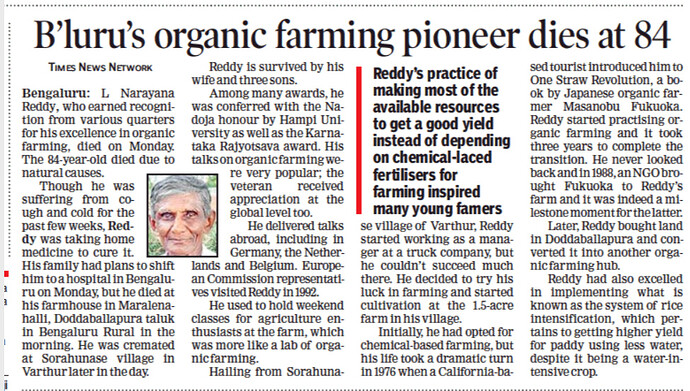India was once a flourishing economy had more than 22% share of world income that equalled that of total Europe. A country that was self-sufficient in its food production and exporter of its produce to today’s developed world; now have to rely on food grain imports to feed the mouths of its ever-increasing population.
The cotton produced by the Indian farmers made one of the finest Muslins of the time which was one of the most sought-aftercommodity in the Roman Empire. Today the Indian cotton farmer sare dying of pesticide poisoning produced by the western world.
Agriculture in India goes through a flux of fortunes owing to vagaries of monsoon, limitations to modernisation of agriculture owing to small land holdings, non-availability of agricultural credit, less knowledge on integrated pest management, and more over no price guarantee for the produce of the farmers which makes agriculture even more difficult and less profitable for the Indian farmers.
The farmer who was once a rich and prosperous cultivator in unable to meet his basic needs and often has to rely on the option of committing suicide. The economic viability of Indian agriculture is in a jeopardy because of smaller and segmented farm lands due to which mechanisation is not possible, Lesser knowledge about new molecules, delays and exorbitant registration expenses for new chemistry and bureaucratic processes that makes the products out dated by the time it gets registered for use.
Many articles have been written on the pesticide conspiracy theory.The chemicals that were manufactured for use in chemical warfare during the 2nd world war, found its place in the agricultural sector as a pesticide.Unfortunately, these chemicals of mass destruction are still doing their job of destroying the Soil, Farm ecology, environment, farmers Health and poisoning of the consumers along with Pests.
The use of Pesticides has led to the slow poisoning of India.With the advent of green revolution came in the chemical fertilizers and the chemical pesticides which showed an initial increase in the overall productivity, however it has destroyed the very fabric of Indian Organic agriculture and increased the emergence of many health issues including an alarming rise in cancer patients.
To restore the soil and add profitability to the Indian agriculture a proper nutrition management is of outmost importance, a healthier crop is less susceptible to availability of water, fluctuation in weather and has more disease resistance capacity. Use of hormones,bio-stimulants and plant nutrients can reduce the consumption of pesticides by 40%. Biological, Organic and Plant derived pesticides along Organic Fertilizers and Nutrients can save the Indian agriculture and help bring back the old glory of the Indian farmers.
At Sunraysia we are dedicated to developing break through products which are derived from organic or biological sources that not only help in increasing the productivity but are also safe to the environment and the farm ecology. What works in other countries may not be suitable for Indian agriculture, owing to its diversified terrain, soil and weather conditions and the cultivation practices. At Sunraysia we develop customised formulations to suit the specific needs of the farmers in different regions.
You can visit: http://sunraysia.co.in for more details
